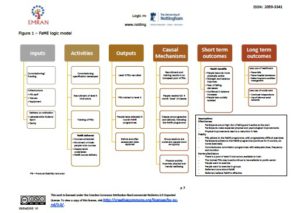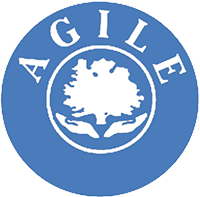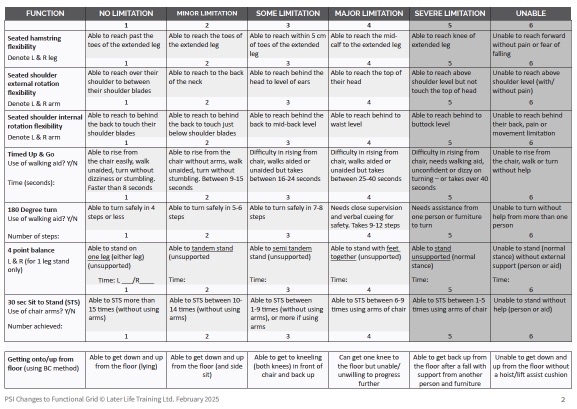As part of the PhISICAL Study, a Logic Model has been developed to allow the implementation of FaME to be tested in the ‘real world’.
 A logic model is an evaluation tool that enables the effective planning, implementation, and evaluation of a programme and can be used by any person or organisation such as commissioners, policy makers or programme managers wanting to commission, implement and evaluate new or existing programmes. Logic models provide us with a visual representation of how a programme is supposed to work by documenting a series of assumptions and articulating the causal relationship between 5 key components; inputs, activities, outputs, outcomes (short/medium and long term) and causal mechanisms. A logic model presents the ‘theory of change’ that is assumed/theorised to occur in response to inputs and activities, which will then lead to the outcomes the programme is intending to achieve.
A logic model is an evaluation tool that enables the effective planning, implementation, and evaluation of a programme and can be used by any person or organisation such as commissioners, policy makers or programme managers wanting to commission, implement and evaluate new or existing programmes. Logic models provide us with a visual representation of how a programme is supposed to work by documenting a series of assumptions and articulating the causal relationship between 5 key components; inputs, activities, outputs, outcomes (short/medium and long term) and causal mechanisms. A logic model presents the ‘theory of change’ that is assumed/theorised to occur in response to inputs and activities, which will then lead to the outcomes the programme is intending to achieve.
The paper explaining the Logic Model and the key fidelity points for successful implementation can be read here. You can read the protocol paper for this Implementation Research here. The full results paper is due out early 2019.






